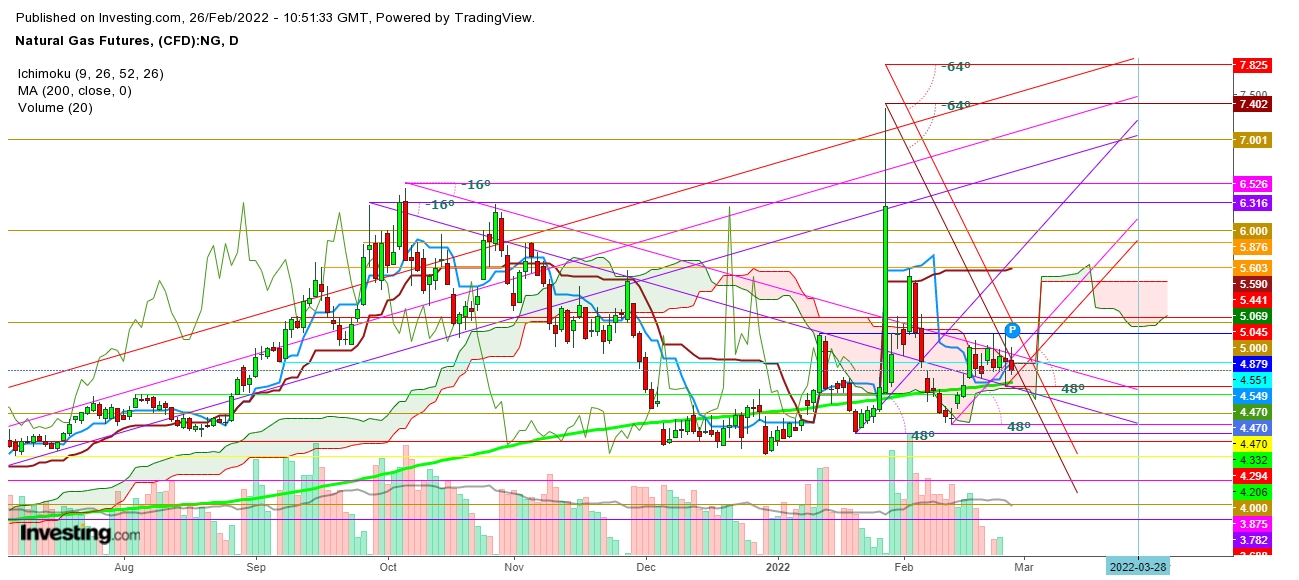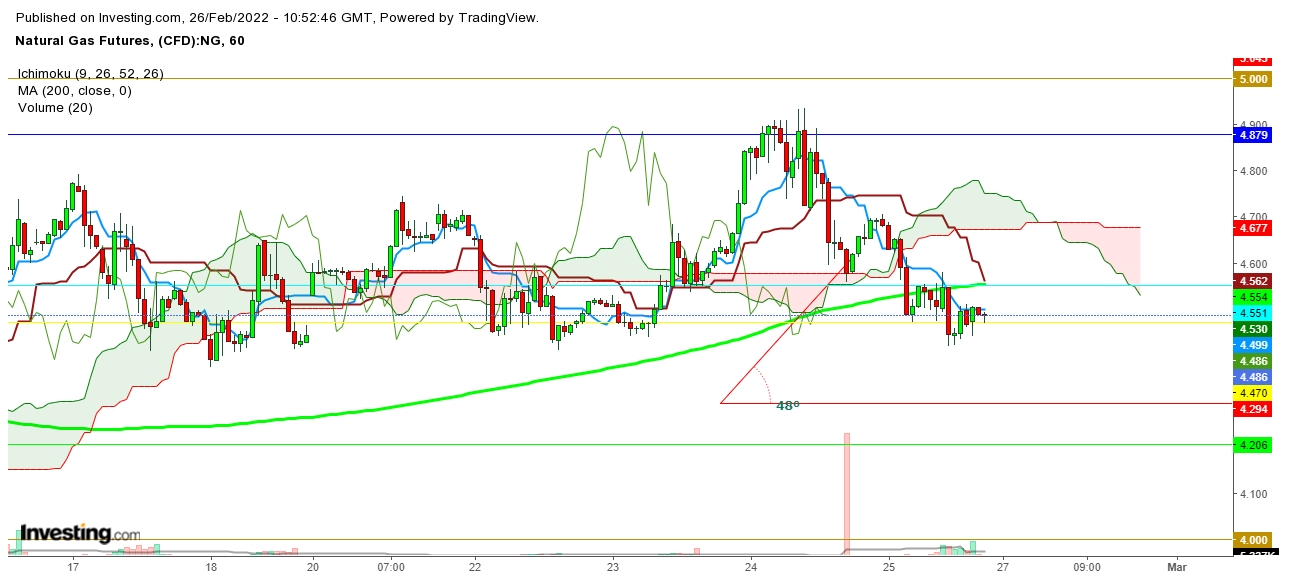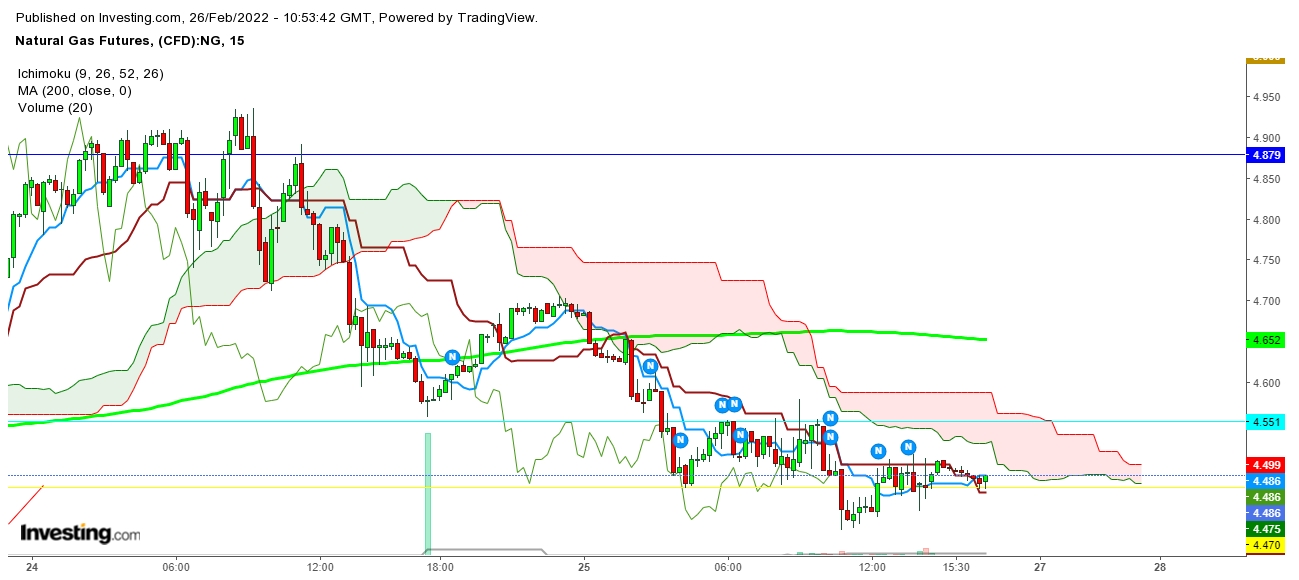Investing.com’s stocks of the week
The Ukraine/Russia crisis looks more horrifying for the energy sector as the sanctions imposed by the United States to create pressure on Russia could turn into a double-edged sword, both for the sanctions-imposing countries as well as the country targeted.
The economic sanctions imposed by the United States and Europe on Russia could have the most damaging impact on global commodities, especially the energy sector. The United States imposed sanctions on Russian President Putin, Foreign Minister Sergei Lavrov, Defense Minister Sergei Shoigu, and the Chief of General Staff Valery Gerasimov.
The European Union and Britain had earlier frozen assets held by Russian President Putin and Lavrov in their territory. Canada also stepped in with the same measures. Undoubtedly, the invasion of the Russian army into Ukraine triggered a flurry of credit rating moves on Friday, with S&P lowering Russia’s rating to "junk" status. But the escalations between Ukraine and Russia growing more intense could be more problematic for commodity prices, particularly for energy.
Despite slapping on financial constraints, Russia seems hardly worried over its disassociation from the rest of the world. Russia knows that the imposed sanctions by the West would be evaporated by the European and Asian countries themselves, as Russia is the favorite destination for Europe and Asia to fulfill their fuel requirements.
Despite repeated assurances by the United States that it would provide sufficient oil and gas to Europe and Asia in case of any supply disruption by Russia, no one will rely upon such assurances by the United States, especially after its reversal on Ukraine, and its refusal to confront Russia even after Russia's invasion of Ukraine.
Russia could come forward to supply the oil and gas at a much cheaper price once this Ukraine turmoil ends. It could be that Ukraine was only meant to capture the opportunity in the energy sector, created after a sudden surge in oil and natural gas demand in the post-pandemic era for economic revival.
Sanctions without any word on energy sectors seem only a hollow assumption that no one will come to Ukraine's rescue unless they have an invested self-interest to sell weapons and fuel. By creating the storage phobia that a draw down in supplies would ensue post aggression, will lead to an increase in the price volatility of oil and natural gas, even after the Ukraine crisis is resolved.
Both the United States and Russia are set to decrease the fuel price first up to new lows to attract buyers; then the price-war will suddenly surge Such a situation could result in profuse buying by countries, upping the prices to extreme highs as they attempt to fill their natural gas and oil capacities.
In such a scenario, both the United States and Russia will try to fetch more and more dollars. Russia will negate the impact of financial sanctions by raising natural gas and oil prices as most European countries are heavily dependent for their fuel requirements on Russian supply only. In such a scenario, the current sanctions look like mere hollow assurances to Ukraine.
Disclaimer: The author of this analysis does not have any position in Natural Gas futures. Readers are advised to take any position at their own risk as Natural Gas is one of the most liquid commodities of the world.
